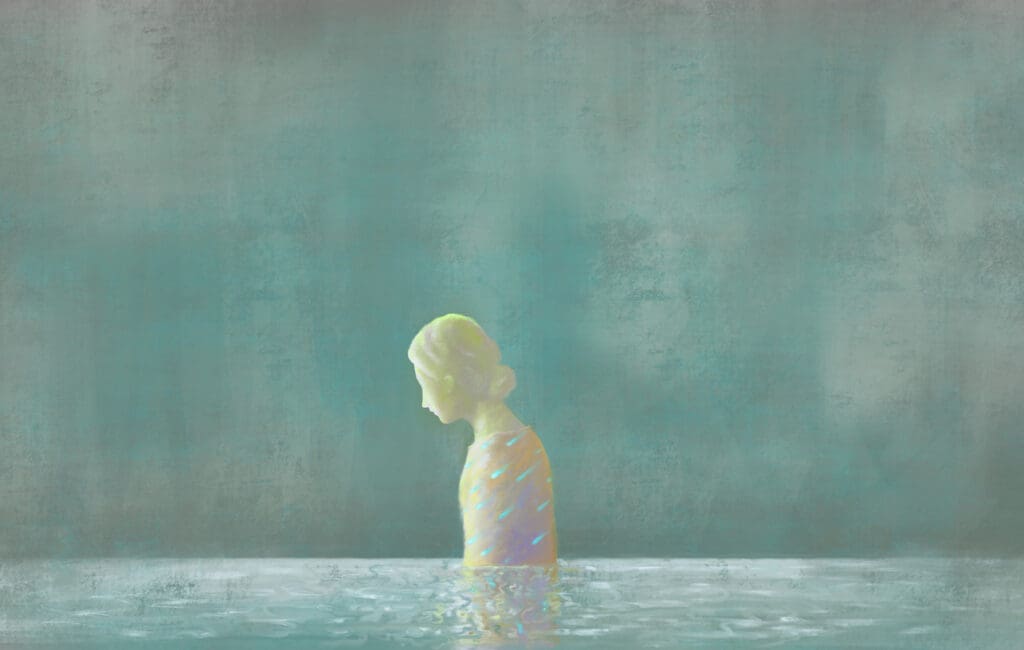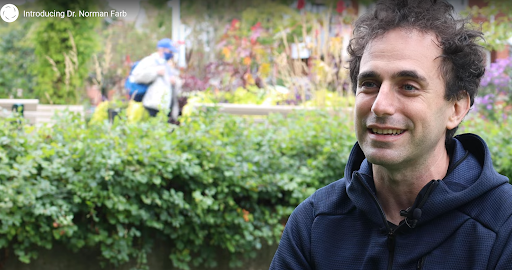
With cascading emergencies from the pandemic to war in Ukraine to the climate crisis now fueling a stress epidemic, social neuroscientist Norm Farb has a lot to say—and a lot on his plate—from ongoing research to co-authoring a new book.
“A lot of us are spending our free time absorbing more threat signals,” says Norm, pointing to the ubiquity of social media. “Most people aren’t curating what they’re taking in on a daily basis at a mental level.”
The good news is that humans can develop new skills and habits to support their physical and mental health. As evidence, Norm points to how research in the 1970s linking healthy eating and exercise to physical well-being spawned the growth of the physical fitness movement. Today we need to look at how threat stimuli are influencing our mental well-being, he adds, and take conscious action to mitigate these effects. Reducing social media consumption may be one such step toward strengthening our mental health immunity.
“A lot of us are spending our free time absorbing more threat signals…
Most people aren’t curating what they’re taking in on a
daily basis at a mental level.”
An Associate Professor of Psychology at the University of Toronto Mississauga, where he directs the Regulatory and Affective Dynamics (RAD) Lab, Norm has been studying the neuroscience of human identity and emotion for nearly two decades. Building off research supported through Mind & Life Francisco J. Varela Grants in 2005 and 2009, and a Mind & Life 1440 Grant in 2016, he’s particularly interested in how cognitive training practices like mindfulness meditation foster resilience against stress and reduce vulnerability to depression.

Norm traces the roots of his interest in the nature of self and how people can change to his teen years. He recalls driving to school with his father, an existential seeker, listening to motivational talks by the likes of Tony Robbins. “One message I got was how arbitrary the set of meanings or narratives we inherit around the world are,” he says.
He went on to pursue a doctorate in psychology and began exploring affective neuroscience and the role of mindfulness in stress reduction. In 2005, he attended his first Mind & Life Summer Research Institute (SRI) at a time when mindfulness research was considered an alternative academic track. He describes SRI as a ‘summer camp,’ where he found a sense of community. At the time, “I was already being slightly chastised for doing neuroscience on emotion,” he says. “SRI was a place where people were taking the same risks.”
The Impact of Prolonged Stress
In the face of multiple crises in today’s world, Norm says the choice of where we place our attention is critical, distinguishing between threats that personally affect us, and those that are long-term and universal, like climate change. “Objectively, it’s just not healthy to be constantly drawn into a threat you can’t manage,” he adds, explaining that this is when people are more apt to experience “feelings of hopelessness, burnout, and disenfranchisement… with their community, culture, even their country.”
That’s not to say we shouldn’t take action when we can, but dwelling on too many big problems at once is counter-productive. It raises the feeling that one must do something, but without any output for that motivation. When one constantly reflects on problems at a surface level, “moving from threat to threat like a bee gathering pollen,” says Norm, one can internalize a feeling of hopelessness, spending more and more time vigilant for further news of a threat without ever doing something about it.
Far better, he says, is to choose not to consume a “curated smorgasbord” of threats each day but instead to pick one issue or problem to reflect upon and make a concrete plan to do something about. It’s also okay to give oneself a break from such problem solving, by choice, rather than the necessity of withdrawing after burnout or breakdown. The important thing is to be intentional about what we attend to, rather than assuming that the status quo of doomscrolling is normal and part of a healthy and sustainable lifestyle.
Safeguarding Student Mental Health
What role can mindfulness play in defending against the psychological impact of today’s crises? Says Norm, “Mindfulness is about exploring your relationship with your experience and realizing there’s more than one way to move through a moment.” Training in mindfulness can help people be more flexible in response to everyday circumstances.
In recent years, Norm and his colleagues have been researching practical mindfulness approaches that can be delivered at low cost and take into consideration competing demands on people’s time. One thing he seeks to avoid is making the time required for mindfulness meditation yet another stressor in people’s lives, especially that of students.
“Mindfulness is about exploring your relationship with your experience
and realizing there’s more than one way to move through a moment.”
In one recent randomized controlled trial, Norm and teaching assistant Alexandra Fiodorova examined the effects of a brief daily self-care reflection on undergraduate student well-being. The study emerged in response to disturbing data on youth mental health, with nearly half of US college students experiencing moderate to severe psychological stress.
With college counseling services over-stretched, the study explored whether encouraging reflections on self-care techniques like mindfulness and self-compassion could improve student well-being. The study was carried out entirely online through sending participants email links with reflective prompts. The results suggest that even a micro-dose of five minutes of self-care reflection can improve student well-being by reducing stress and negative affect.
That’s not to say that students should downplay the potential benefits of a more in-depth approach to meditative practice, but shorter practices sustained over time offer an entry point that can be beneficial in today’s over-stressed environment. Says Norm, “I’m interested in identifying the thinnest edge of the wedge and how people can get started on these transformational arcs” that can strengthen their emotional resilience—and reduce suffering—over the long-term.
In 2018, Norm was honored with Mind & Life’s Catherine Kerr Award for Courageous and Compassionate Scholarship. Watch his presentation on How to Choose Between Beautiful Stories.

